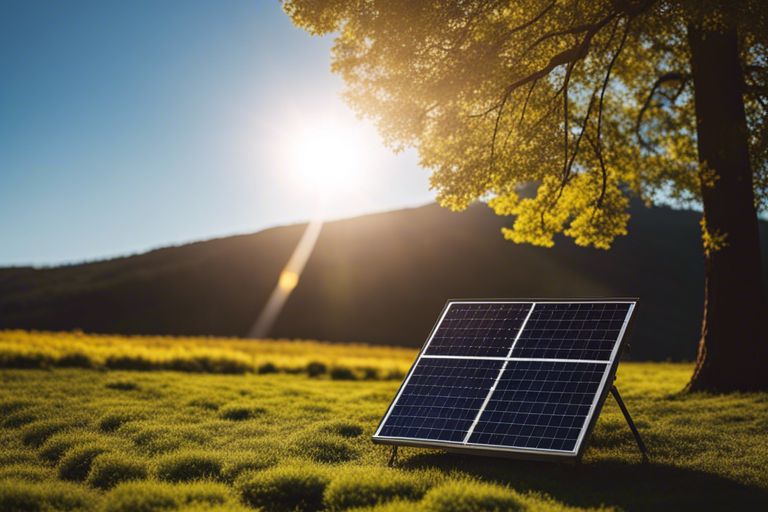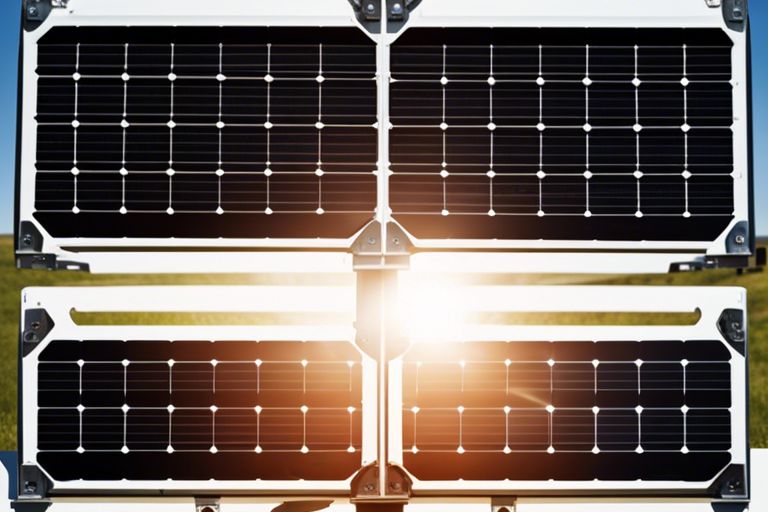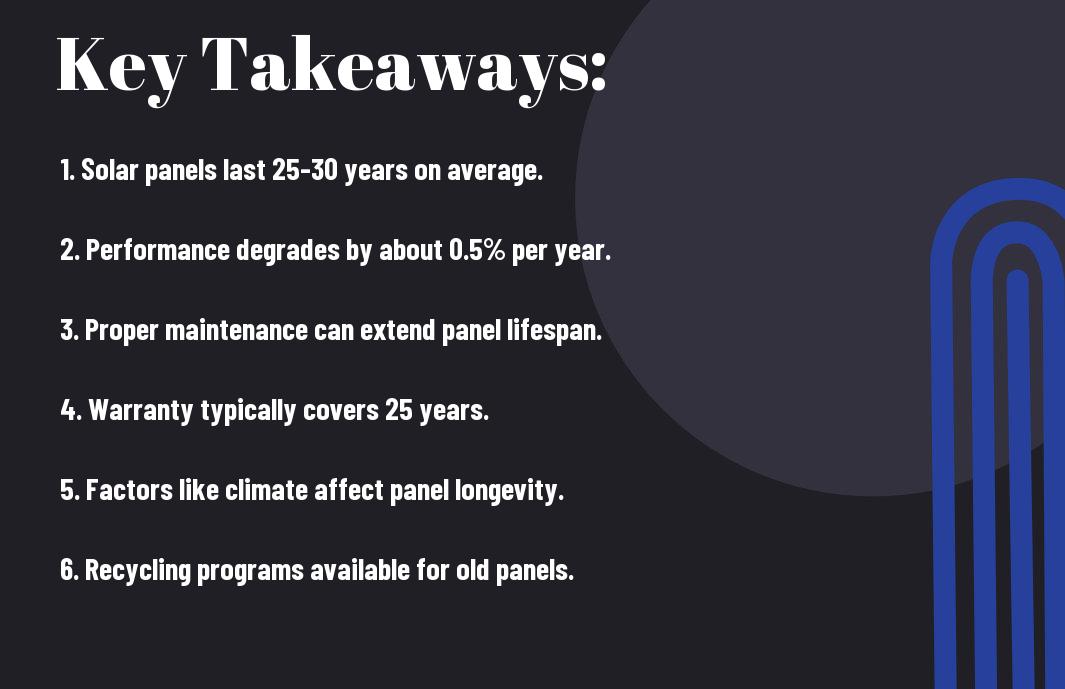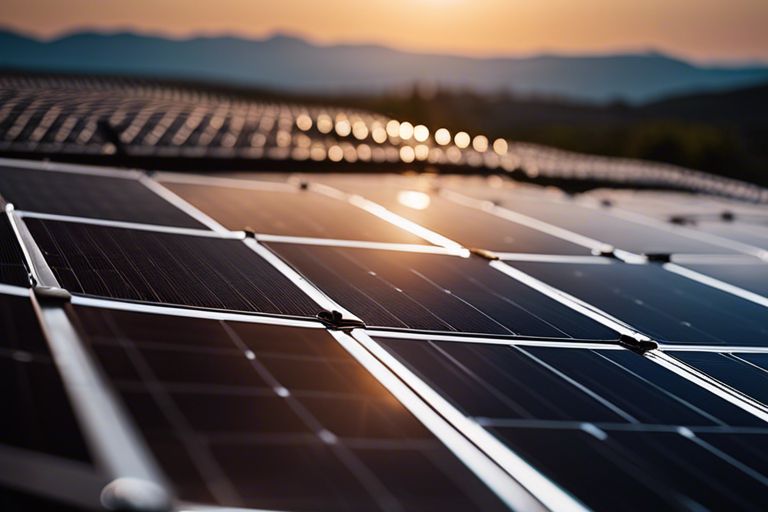Durability is a key factor when you are considering investing in solar panels. Have you ever wondered how long these panels actually last? Let’s research into the lifespan of solar panels and uncover the factors that can affect their longevity. By the end of this article, you will have a clear understanding of what to expect in terms of the durability of your solar panel system.
Key Takeaways:
- Typical lifespan: Solar panels have a typical lifespan of 25 to 30 years with most manufacturers offering warranties for this duration.
- Decay rate: Solar panels degrade at a rate of about 0.5% to 1% per year, meaning they can still produce energy at a reduced efficiency after their lifespan.
- Maintenance: Regular maintenance and cleaning can help to extend the life of solar panels and maintain optimal performance.
The Average Lifespan of Solar Panels
Before entering into the average lifespan of solar panels, you might wonder, how long do solar panels last? Let’s explore this in more detail.
Industry Standards and Warranty Periods
Panels manufactured by reputable companies often come with industry-standard warranties that guarantee their performance for around 25 to 30 years. These warranties typically ensure that your solar panels will still produce at least 80% of their initial power output by the end of the warranty period. It’s important to check the warranty details when purchasing solar panels to understand the coverage and what to expect in terms of longevity.
Factors Affecting Solar Panel Durability
Solar panel durability can be affected by various factors, including the quality of the materials used, installation practices, climate conditions, and maintenance routines. Ensuring proper installation and regular maintenance can help prolong the lifespan of your solar panels. The design and technology of the panels also play a significant role in their durability.
- The quality of materials used in the construction of the solar panels
- Climate conditions and exposure to elements like hail, snow, and extreme temperatures
- Maintenance practices and how well the panels are cared for
Solar Panel Degradation
Periods of time can cause solar panels to degrade slowly over the years. Despite this, solar panels are designed to withstand various environmental conditions and continue to generate electricity efficiently for decades. Regular monitoring of your solar panel system’s performance can help you detect any issues early on and ensure that it operates optimally throughout its lifespan.

Degradation Rates and Performance Over Time
How Solar Panels Lose Efficiency
The degradation of solar panels occurs gradually over time. The exposure to sunlight, temperature variations, and other environmental factors can impact the efficiency of your solar panels. The components within the panels can degrade slightly each year, leading to a reduction in performance.
Measuring Degradation: What to Expect
To measure degradation in solar panels, manufacturers often provide a warranty that guarantees a certain level of performance over a specified period. For example, it is common to see warranties that guarantee around 80% efficiency after 25 years. This means that over time, you can expect a gradual decrease in efficiency, but it should still be producing a significant amount of electricity even after a couple of decades.
Efficiency degradation rates can vary depending on the quality of the panels and how well they are maintained. Factors like proper installation, regular cleaning, and avoiding shading can help mitigate degradation and ensure that your solar panels last as long as possible.
Causes of Solar Panel Failure
Once again, it is crucial to understand the factors that can lead to solar panel failure. Various issues can affect the performance and longevity of your solar panels, ranging from environmental factors to manufacturing defects and quality control.
Environmental Factors: Weather, Temperature, and Humidity
With respect to environmental factors, weather conditions play a significant role in the lifespan of your solar panels. Exposure to harsh weather elements such as hail, snow, or strong winds can cause physical damage to the panels. Moreover, extreme temperatures and high humidity levels can accelerate the degradation of solar panel components over time.
- Weather Conditions: Hail, snow, strong winds
- Temperature Extremes: High heat, freezing temperatures
- Humidity Levels: High humidity
This can lead to cracks, delamination, yellowing, or corrosion of the materials, ultimately impacting the efficiency of your solar panels. Regular maintenance and monitoring of your system can help mitigate the effects of these environmental factors and prolong the lifespan of your solar panels.
Manufacturing Defects and Quality Control
Any solar panel system is only as good as its components, and manufacturing defects can significantly impact the performance and longevity of your panels. An oversight during the production process, such as using substandard materials or poor quality control, can lead to premature failure of the panels.
Manufacturing defects and quality control issues can manifest in various ways, including hot spots, potential induced degradation (PID), or solder bond failures. These issues can reduce the overall efficiency of your solar panels and, if left unaddressed, may result in costly repairs or replacements. Proper research and selecting reputable manufacturers can help mitigate the risks associated with manufacturing defects in your solar panel system.
Maintenance and Repair: Extending Solar Panel Life
Regular Cleaning and Inspection
Inspection and maintenance are crucial for ensuring the longevity of your solar panels. Regularly cleaning the panels, typically with soap and water, helps prevent dirt and debris buildup that can reduce efficiency. Additionally, inspecting the panels for any signs of damage, such as cracks or corrosion, allows you to address issues promptly before they worsen.
Repairing or Replacing Damaged Panels
With proper care, solar panels can last for decades. However, if you do encounter a damaged panel, it’s crucial to address the issue promptly to prevent further damage to the system. Depending on the extent of the damage, you may need to either repair or replace the panel. Consulting a professional solar panel technician can help you determine the best course of action to ensure your system continues to operate efficiently.
To further extend the lifespan of your solar panels, consider investing in monitoring systems that can alert you to any issues with the panels. These systems can help you identify problems early on, allowing for timely repairs and potentially saving you money in the long run.

Advances in Solar Panel Technology
Despite the longevity of solar panels, advancements in solar panel technology are continuously being made to improve efficiency and durability. If you are interested in learning more about how long solar panels last, you can check out this informative article on How Long Do Solar Panels Last?.
Improving Efficiency and Durability
On the front of improving efficiency and durability, researchers and manufacturers are constantly exploring new ways to enhance the performance of solar panels. By increasing the efficiency of solar panels, you can generate more electricity from the same amount of sunlight, making solar energy an even more attractive option for you.
New Materials and Manufacturing Techniques
Technology plays a crucial role in the development of solar panels. New materials and manufacturing techniques are being investigated to create solar panels that are not only more efficient but also more affordable and sustainable. By incorporating materials like perovskites into solar panel production, researchers aim to boost efficiency levels even further while keeping costs reasonable for you.
Understanding the advancements in solar panel technology can provide you with valuable insights into the future of solar energy and how it can benefit you in terms of efficiency, durability, and sustainability.
Real-World Examples and Data
Studies on Solar Panel Longevity
Data from various studies on solar panel longevity show that most panels have a lifespan of around 25 to 30 years. Factors such as weather conditions, maintenance, and the quality of the panels can affect this lifespan. Some studies suggest that solar panels can still be operational at 80% of their original capacity even after 25 years of use. This means that investing in solar panels can provide you with a reliable and long-term source of clean energy for your home or business.
Case Examples of Well-Performing Solar Panels
For example, SolarCity, now part of Tesla, installed solar panels on the island of Ta’u in American Samoa. Despite the island’s remote location and exposure to harsh weather conditions, the solar panels have been performing exceptionally well since their installation in 2016. This case demonstrates how solar panels, when properly installed and maintained, can withstand challenging environments and continue to generate electricity efficiently for years to come.
RealWorldAdditionally, a study conducted by the National Renewable Energy Laboratory (NREL) found that solar panels installed in 1975 were still functioning at 86% of their original capacity in 2015. This longevity showcases the durability and long-term effectiveness of solar panels when well-maintained. By investing in high-quality solar panels and ensuring proper care, you can expect them to provide you with reliable clean energy for decades.

Conclusion
To wrap up, solar panels have a lifespan of about 25-30 years before their efficiency begins to decline. Factors such as weather conditions, maintenance, and quality of the materials can affect how long your solar panels will last. By investing in high-quality panels, keeping up with regular maintenance, and being mindful of environmental factors, you can extend the lifespan of your solar panel system.
Recall, the longevity of your solar panels ultimately depends on how well you take care of them. By following proper maintenance practices and monitoring their performance over time, you can ensure that your solar panel system continues to generate clean and renewable energy for years to come.
Q: How long does a solar panel last?
A: On average, solar panels can last anywhere from 25 to 30 years. However, their lifespan can be influenced by various factors such as the quality of the panels, maintenance, and environmental conditions.
Q: What factors can affect the lifespan of a solar panel?
A: Several factors can impact the lifespan of a solar panel including the quality of the panels, the maintenance practices followed, the climate in which they are installed, and the overall wear and tear over time.
Q: Do solar panels require maintenance to ensure longevity?
A: Yes, regular maintenance is important to ensure the longevity of solar panels. This may include cleaning the panels, checking for any damage or defects, and ensuring proper ventilation to prevent overheating.
Q: Can solar panels be repaired if they are damaged?
A: In most cases, minor damages to solar panels can be repaired by a professional. However, extensive damage may require replacing the affected panels. Regular maintenance can help identify and address issues before they escalate.
Q: What happens to solar panels at the end of their lifespan?
A: At the end of their lifespan, solar panels can be recycled to reclaim valuable materials such as silicon and glass. Recycling helps reduce the environmental impact of solar panels and allows for the reuse of materials in the manufacturing of new panels.
